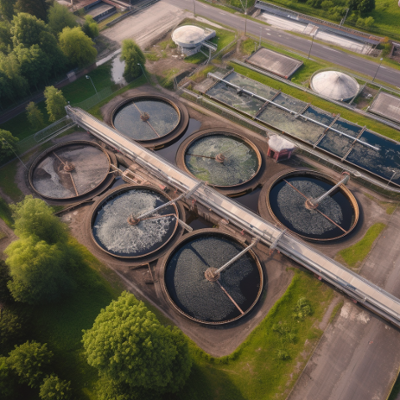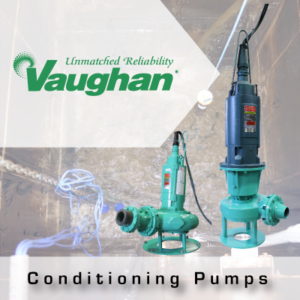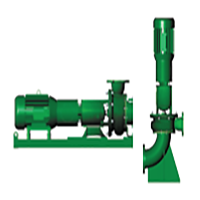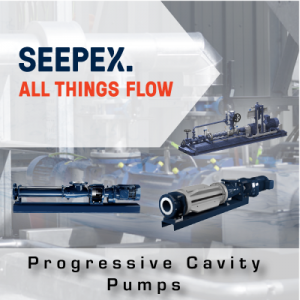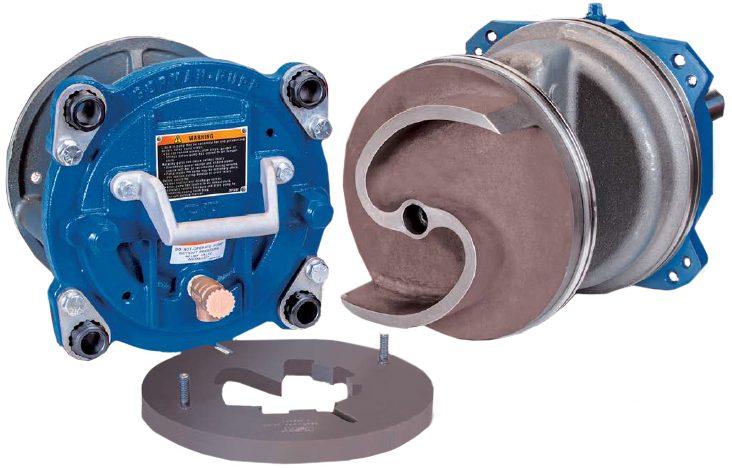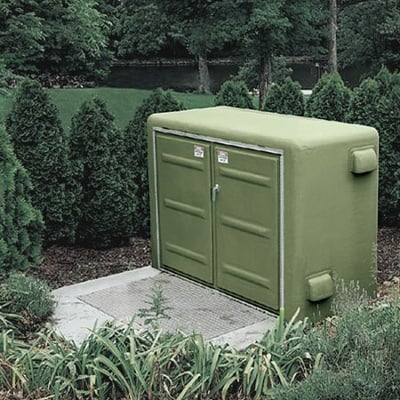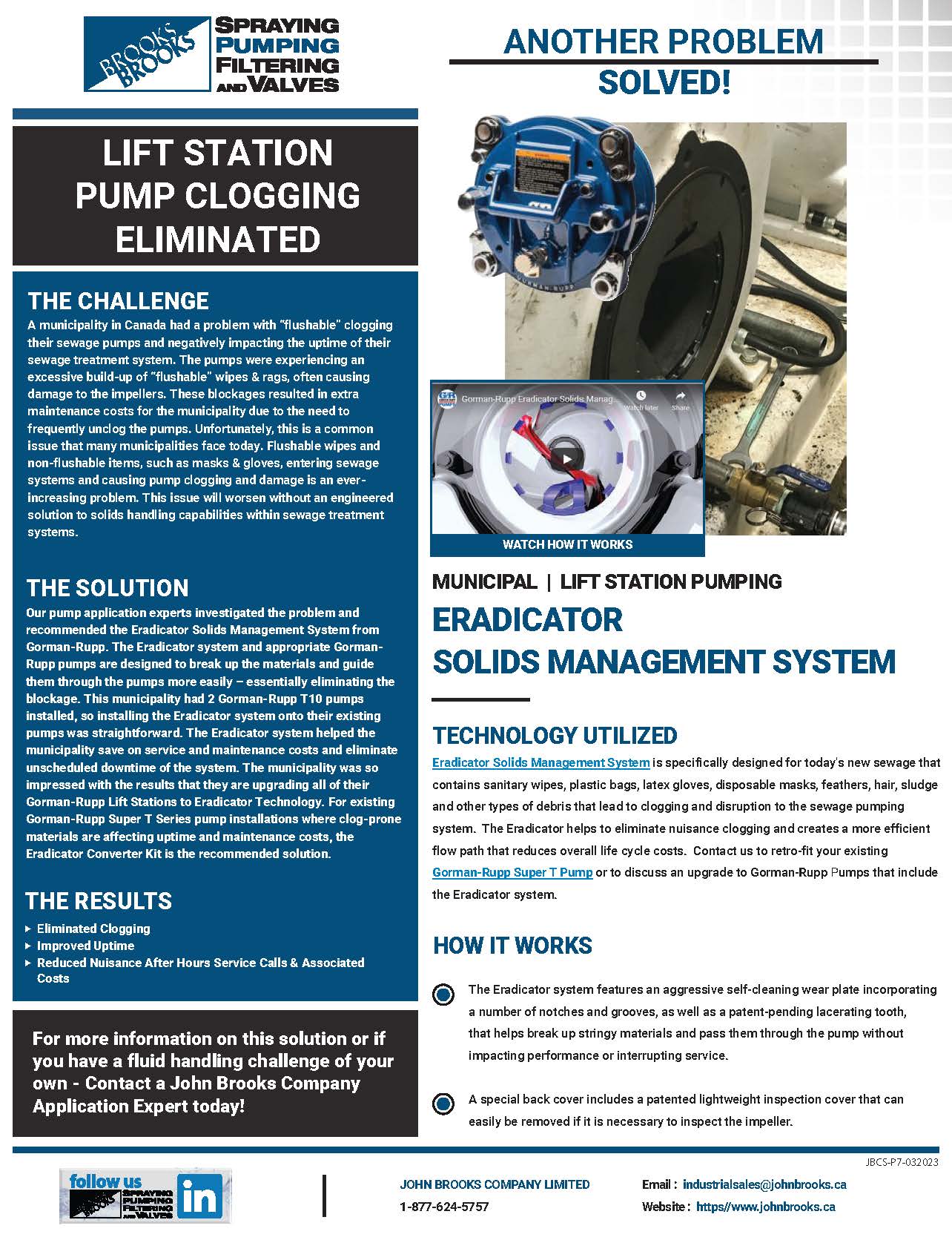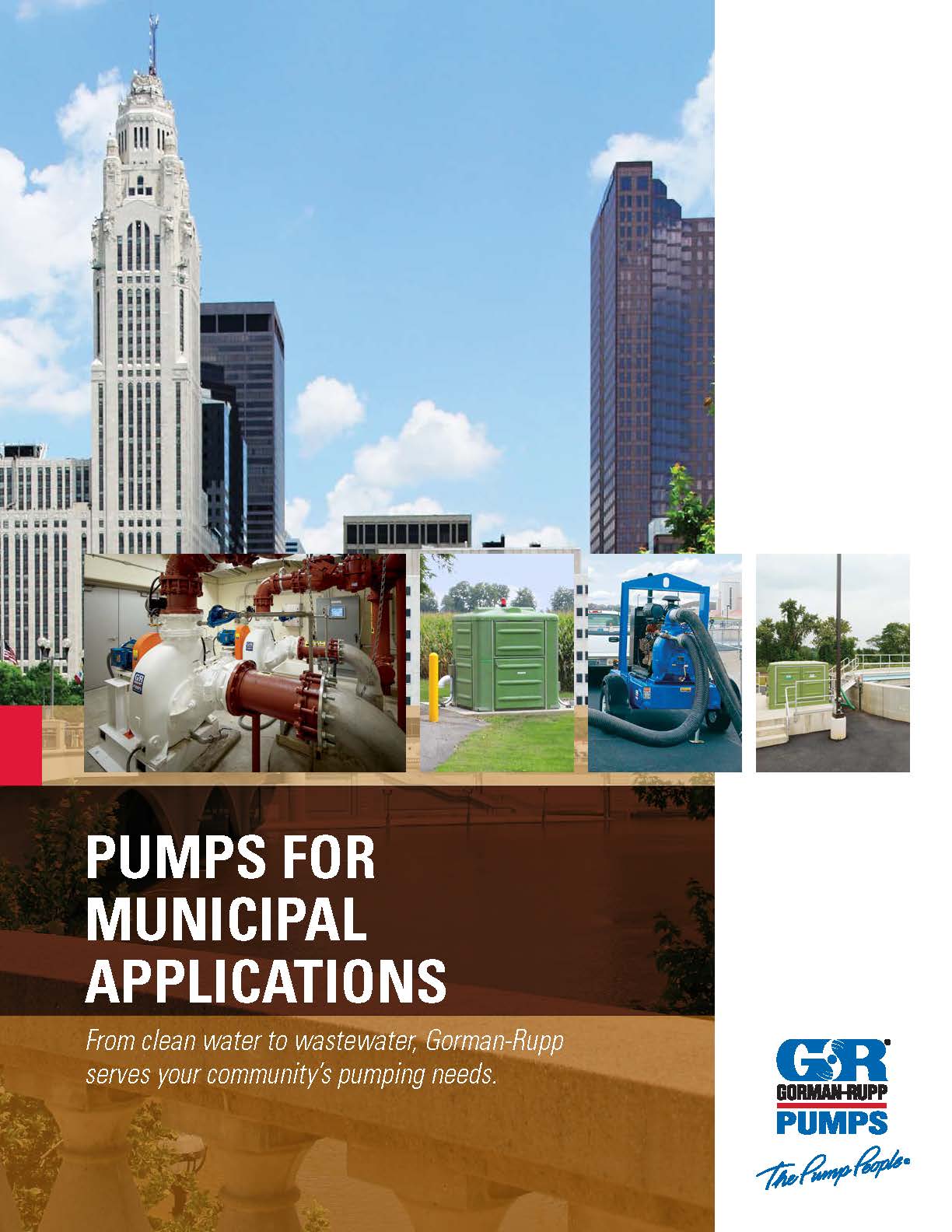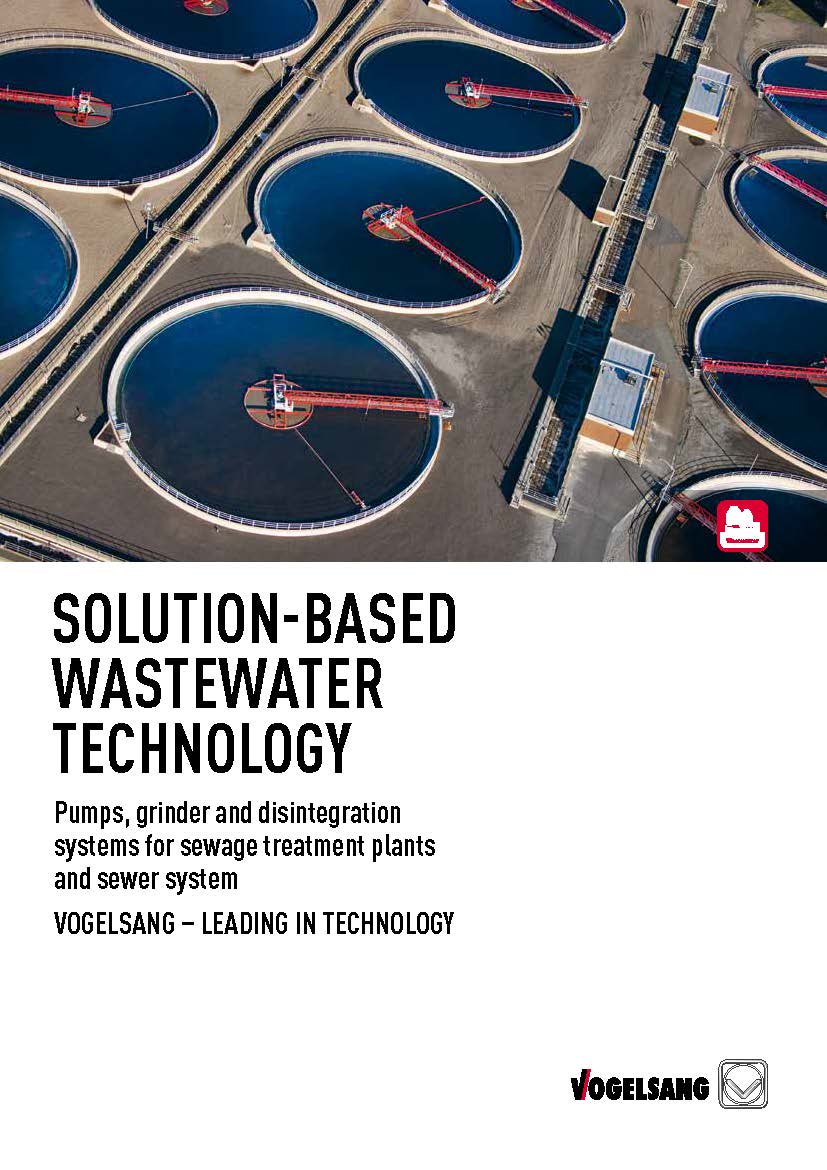Effective Sewage Solids Handling
As communities strive to maintain efficient and sustainable wastewater management, it is crucial to address the challenges of non-biodegradable items and fats, oils, and greases (FOG). From wipes and diapers to rags and plastics, these materials, when combined with FOG, pose significant threats to our sewage infrastructure.
The Importance of Proper Sewage Solids Handling
By addressing these challenges through conditioning pumps, municipalities can ensure the smooth operation of their sewage systems, protect public health, and safeguard the environment.
- Addressing Solid Waste Accumulation: Non-biodegradable items like wipes, diapers, rags, and plastics, combined with fats, oils, and greases (FOG), pose challenges to sewage systems, causing solid waste accumulation, clogging, reduced flow rates, and increased maintenance requirements.
- Prevention of Blockages, Leaks and Overflows: Improperly discarded non-biodegradable items such as wipes and diapers can clog sewage equipment, causing blockages, leaks, and overflows that pose health risks and environmental contamination.
- Enhancing Treatment Efficiency: Properly conditioning sewage, including breaking down solids and managing FOG, is essential for efficient wastewater treatment, preventing solids accumulation, optimizing performance, and reducing energy consumption required for processing.
- Preserving Water Quality: By adequately breaking down solids and managing FOG, conditioning pumps help keep clean and healthy water sources, minimizing the risk of contamination and protecting aquatic ecosystems.
- Cost Savings and Operational Efficiency: Effective sewage solids handling using pumps, like the Vaughan Chopper Pump, reduces maintenance costs and downtime associated with equipment failures, blockages, and pipe damage by preventing unnecessary repairs and optimizing operational efficiency.
Sewage Solids Handling: Pumps Powering Efficient Solutions
Several types of pumps can be used to condition municipal sewage. Each type has its advantages and suitability for specific applications. Here are some common pump types used for sewage solids handling.
Centrifugal Pumps
- Centrifugal Pumps, such as Gorman-Rupp centrifugal pumps are widely used in sewage treatment plants for various applications, including sewage solids handling. They work by using centrifugal force to move the sewage. Centrifugal pumps can be designed with open or closed impellers, and some models have solids-handling capabilities to handle larger particles and solids.
- Conditioning Pumps: Conditioning pumps, such as the Vaughan Conditioning Pump, address sewage solids handling challenges by utilizing a chopper impeller that cuts and macerates solids, preventing clogging and blockages.
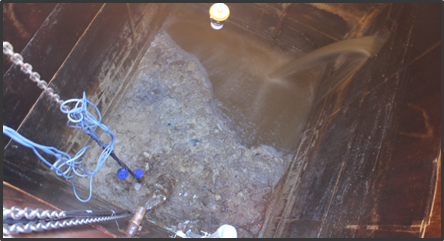
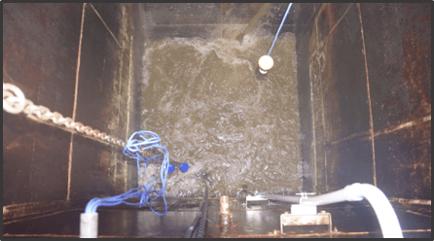
- Submersible Pumps: Submersible pumps from John Brooks Company are designed to be immersed directly in the sewage or wet well. They are commonly used in lift stations and wastewater treatment plants. Submersible pumps are adequate for handling raw sewage and can be equipped with features like vortex impellers or solids-handling capabilities for conditioning sewage with solids and debris.
Positive Displacement Pumps
- Progressive Cavity Pumps: Progressive cavity pumps from SEEPEX, are positive displacement pumps that can handle viscous and non-Newtonian fluids, making them suitable for handling sewage with higher concentrations of solids, sludge, or grit. These pumps have a helical rotor that rotates inside a stator, creating a pumping action.
- Rotary Lobe Pumps: Rotary Lobe Pumps from Vogelsang, such as the Vogelsang IQ series and VX series offer an effective solution for sewage by efficiently handling thick and viscous substances, including sludge and wastewater. Its robust design and ability to handle solids and abrasive materials make it suitable for reliable and continuous operation, ensuring proper treatment and disposal of municipal wastewater.
It is important to note that the suitability of a particular pump type for sewage solids handling depends on factors such as the specific characteristics of the sewage, the desired level of solids reduction, the flow rate, and the system requirements.
Have a Sewage Solids Handling Problem? We can help you find a Pumping Solution.
John Brooks Company caters to diverse industries, offering suitable pump solutions for nearly all municipal needs - including yours! Our success hinges on fostering a collaborative partnership with you, where we help you find a tailored solution to enhance your systems, boost productivity, and minimize operational expenses
Consult with a John Brooks Company Pump expert today to help you determine the most suitable pump type for your sewage solids handling application needs.
